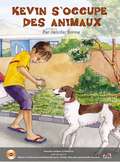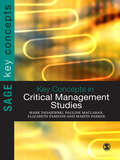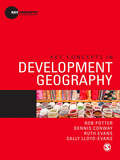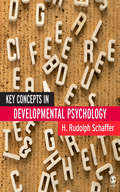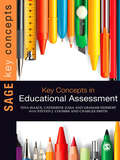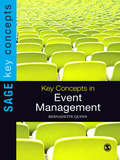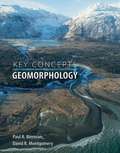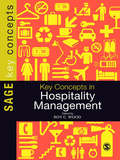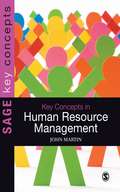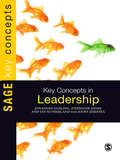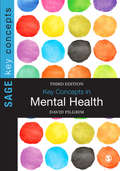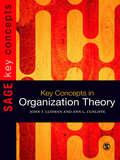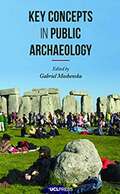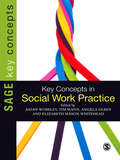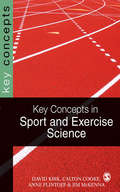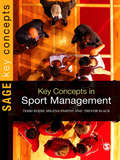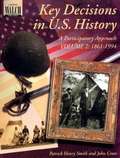- Table View
- List View
Keralapadavali class 6 - Kerala Board: കേരളപാഠാവലി സ്റ്റാന്ഡേര്ഡ് VI
by Scertകേരള സ്റ്റേറ്റ് മലയാളം മീഡിയം ആറാം ക്ലാസിലെ കേരളപാഠാവലി പാഠപുസ്തകം. മലയാളത്തിന്റെ വിപുലമായ സാഹിത്യസമ്പത്ത് പരിചയപ്പെടുത്തുന്ന ഒരു പാഠപുസ്തകമാണ് ഇത്.
Keralapadavali class 8 - Kerala Board: കേരളപാഠാവലി മലയാളം സ്റ്റാന്ഡേര്ഡ് VIII
by Scertഇത് എട്ടാം ക്ലാസിലെ അടിസ്ഥാനപാഠാവലി പാഠപുസ്തകമാണ്. ഇതിൽ കഥകള്, കവിതകള്, നാടകം തുടങ്ങി ഭാഷാപഠനത്തിനുതകുന്ന രസകരമായ പാഠഭാഗങ്ങളാണുള്ളത്.
Keralapadavali Malayalam class 7 - Kerala Board: കേരളപാഠാവലി മലയാളം ക്ലാസ് 7 - കേരള ബോർഡ്
by Scertഏഴാം ക്ലാസിലെ കേരളപാഠാവലി മലയാള പാഠപുസ്തകം. കഥ, കവിത, യാത്രാസാഹിത്യം എന്നിവയെല്ലാം ഉള്ക്കൊള്ളിച്ചിട്ടുള്ള വിജ്ഞാനപ്രദമായ അധ്യായങ്ങളാണ് ഈ പുസ്തകത്തിലുള്ളത്.
Keralapadavali (Part 1) class 9 - Kerala Board: കേരളപാഠാവലി മലയാളം ക്ലാസ് 9 ഭാഗം 1
by Scertസ്വതന്ത്രമായ വായനയ്ക്കും ചിന്തയ്ക്കും സർഗാത്മകാവിഷ്കാരങ്ങൾക്കും ഒട്ടേറെ അവസരങ്ങൾ ഒരുക്കിയിട്ടുള്ള ഒമ്പതാം ക്ലാസിലെ മലയാളം പാഠപുസ്തകമാണ് കേരളപാഠാവലി ഭാഗം 1. മഹത്തായ കവിതകളും കഥകളും മറ്റു സാഹിത്യ ശാഖകളും പരിചയപ്പെടുത്തുന്ന ഈ പുസ്തകം മലയാള പഠനം രസകരമാക്കിത്ത
Keralapadavali (Part 2) class 9 - Kerala Board: കേരളപാഠാവലി മലയാളം ക്ലാസ് 9 ഭാഗം 2
by Scertസ്വതന്ത്രമായ വായനയ്ക്കും ചിന്തയ്ക്കും സർഗാത്മകാവിഷ്കാരങ്ങൾക്കും ഒട്ടേറെ അവസരങ്ങൾ ഒരുക്കിയിട്ടുള്ള ഒമ്പതാം ക്ലാസിലെ മലയാളം പാഠപുസ്തകമാണ് കേരളപാഠാവലി ഭാഗം 2. മഹത്തായ കവിതകളും കഥകളും മറ്റു സാഹിത്യ ശാഖകളും പരിചയപ്പെടുത്തുന്ന ഈ പുസ്തകം മലയാള പഠനം രസകരമാക്കിത്ത
Kevin S`Occupe Des Animaux class 1 - MIE
by Par Jennifer Bonne"Kevin s'occupe des animaux" est un livre géant conçu pour faciliter l'éveil à la littératie chez les jeunes apprenants. L'histoire suit Kevin, qui, en jouant avec son chien Pixie, découvre que celui-ci s'est blessé à la patte. Avec l'aide de sa maman, il soigne le chien et apprend l'importance de prendre soin des animaux. En explorant son environnement, Kevin observe les changements chez les perruches et découvre différents animaux chez sa voisine, suscitant son désir d'avoir sa propre ferme à l'avenir, tandis qu'Ashley exprime son aspiration à devenir vétérinaire. Le livre encourage l'interaction avec les élèves en les incitant à partager leurs expériences personnelles avec les animaux, tout en visant à développer leur compréhension du vocabulaire et à stimuler leur imagination à travers des activités interactives liées au thème des soins aux animaux.
Key Concepts in Critical Management Studies (SAGE Key Concepts series)
by Martin Parker Mark Tadajewski Pauline Maclaran Dr Elizabeth ParsonsIdeal as an introduction and as a quick reference, Key Concepts in Critical Management Studies explores the essential concepts used within the field today. Specially edited and written by a range of international experts, key ideas are succinctly explained and illustrated beyond a simple definition. Further reading suggestions and cross-referencing provide the reader with means to develop their knowledge further.<P><P> With over 50 entries, from Actor Network Theory to Utopianism, readers have instant access and explanation of the most influential concepts in CMS literature. Clear and engaging, this will provide strong support for all courses involving critical management and is a perfect resource for anyone with an interest in this field.
Key Concepts in Development Geography (Key Concepts in Human Geography)
by Ruth Evans Sally Lloyd-Evans Rob Potter Dennis Conway"An excellent and supremely accessible guide to some key issues in development geography" - Stuart Corbridge, London School of Economics "Provides a clearly stated, informed and strongly structured pathway through the key literatures and debates" - Jonathan Rigg, Durham University Organized around 24 short essays, Key Concepts in Development Geography is an introductory text that provides students with the core concepts that form contemporary research and ideas within the development geography discipline. Written in a clear and transparent style, the book includes: an introductory chapter providing a succinct overview of the recent developments in the field over 24 key concept entries that provide comprehensive definitions, explanations and evolutions of the subject excellent pedagogy to enhance students' understanding including a glossary, figures, diagrams, and further reading. Organized around five of the most important areas of concern, the book covers: the meanings and measurement of development; its theory and practice; work, employment and development; people, culture and development; and contemporary issues in development. The perfect companion for undergraduate and postgraduate students on geography degrees, the book is a timely look at the pressingly important field of international development studies today.
Key Concepts in Developmental Psychology
by H. Rudolph SchafferPerfect for courses in child development or developmental psychology and arranged thematically in sections corresponding to chapter headings usually found in textbooks, this book is ideal for students wanting an accessible book to enrich their learning experience. Key Features: - Provides an overview of the place of each concept in Developmental Psychology under three headings, namely its meaning, origins and current usage. - Concepts are grouped into sections corresponding to the main themes usually covered in teaching. - Relevant concepts in the book are emboldened and linked by listing at the end of each concept - Guidance is provided to further reading on each of the concepts discussed. The book will be centrally important to undergraduate students who need to learn the language used by developmental psychologists in describing their studies, but will also help more advanced readers in checking their ideas regarding the nature and uSAGE of particular concepts.
Key Concepts in Educational Assessment (SAGE Key Concepts series)
by Charles Smith Graham Herbert Catherine Zara Tina Isaacs Steven J. CoombsKey Concepts in Educational Assessment provides expert definitions and interpretations of common terms within the policy and practice of educational assessment. Concepts such as validity, assessment for learning, measurement, comparability and differentiation are discussed, and there is broad coverage of UK and international terminology. Drawing on the considerable expertise of the authors, the entries provide: - clear definitions - accounts of the key issues - authoritative and reliable information - suggestions for further reading Created to support students of education on undergraduate and postgraduate courses, and established education professionals including those who are members of the Chartered Institute of Educational Assessors (CIEA), this book is an accessible guide for anyone engaged in educational assessment. Tina Isaacs is Director of the MA in Educational Assessment at the Institute of Education, London. Catherine Zara was most recently Director of the MA in Educational Assessment and Director of the BA (Hons) in Post Compulsory Education and Training at the University of Warwick. Graham Herbert was most recently Director of the CIEA. Steve J. Coombs is Head of Department for Continuing Professional Development at Bath Spa University, which offers an MA in Educational Assessment. Charles Smith is senior lecturer in economics and education at Swansea Metropolitan University of Wales Trinity Saint David.
Key Concepts in Event Management (SAGE Key Concepts series)
by Bernadette QuinnIn recent years we have seen an enormous growth of festivals and event activity and the literature within the field is consequently huge. In order to make sense of this rapid and dynamic development, students are dependent on a book that can lead them through the myriad of theoretical frameworks offered.<P> <P> This book naturally situates itself in the middle of this need, offering a comprehensive and illuminating account of the festival and event field. Written with academic rigour yet accessible at the same time, Quinn proves herself to be an outstanding communicator and stimulator of knowledge. <P> International in content and timely in its up to date coverage of key topics, this will be an invaluable reference source for students from Event Management, Tourism and Leisure studies. It will also be of great use for students from Business Studies, Marketing, Cultural Studies and Geography.
Key Concepts in Geomorphology
by Paul R. Bierman David R. MontgomeryWritten for introductory geomorphology courses, Key Concepts in Geomorphology offers an integrative, applications-centered approach to the study of the Earth’s dynamic surface. Bierman and Montgomery draw from the fields of physics, chemistry, biology, and mathematics to help students get a basic understanding of Earth surface processes and the evolution of topography over short and long timescales. The authors also hone in on practical applications, showing how scientists are using geomorphological research to tackle critical societal issues (natural disaster response, safer infrastructure, protecting species, and more).
Key Concepts in Hospitality Management (SAGE Key Concepts series)
by Roy C. WoodThis edited book covers the major concepts you are likely to encounter throughout their study within the hospitality field, giving a comprehensive and up-to-date overview as well as providing engaging everyday examples from around the world. <P><P> A leading figure in the field, Wood has successfully gathered international contributors with direct experience of hospitality management and the hospitality industry as a whole, ensuring both the academic, geographical and practical integrity of the book. <P> Key Concepts in Hospitality Management is written for undergraduate students and those studying short postgraduate or executive education courses in hospitality. It would also be of use to the general academic reader seeking information on the hospitality industry and hospitality management.
Key Concepts in Human Resource Management (SAGE Key Concepts series)
by John MartinKey Concepts in Human Resource Management is an essential guide to the theories and issues that define the field - from the critical debates to the more practical considerations that every student should be aware of.<P> 52 short and snappy entries serve to orientate the student round the need-to-know essentials.<P> - Entries include Employment Tribunals, Benefits, Corporate Social Responsibility, Discipline and Grievance, Control, Employee relations, Incentive schemes, Motivation, Organizational culture, Strategic HRM, Victimisation.<P> - A range of relevant HR applications will be given for each term.<P> - A selection of recommended readings are suggested for each entry.<P>
Key Concepts in Leadership (SAGE Key Concepts series)
by Stephanie Jones Jonathan Gosling Ian SutherlandWhat are the main characteristics of effective leadership? <P> <P> How can we understand leadership today?<P> This wide-ranging, inter-disciplinary book provides readers with a complete introduction to the essentials of leadership. Included here are accessible and insightful entries on what leadership is, how it is practised and the relevant strengths and pitfalls. The book provides a one stop introductory guide to one of the most central and contested concepts in the social sciences. An invaluable reference tool, this book offers insight into issues such as:<P> * Are leaders born or made?<P> * Authoritarian versus participative leadership<P> * The psychology of leaders and followers<P> * Leadership development<P> * Leadership styles, skills and functions<P> * Leadership in practice<P> This book is an indispensable guide to the central concepts of leadership for professionals and students alike.
Key Concepts in Mental Health
by David PilgrimThis is the only text to give you a complete, concise overview of mental health and all the issues that surround it from a theoretical and practical point of view. Split into three sections, the book defines mental health and mental illness, examines the services and settings in which mental health care takes place and discusses the societal issues surrounding mental health. Made up of 63 bite-sized chapters, the book offers: · Definitions of the key concepts · Key points that you need to know for your study and practice · Further reading to help you expand your knowledge It will be essential reading for students of health, nursing, mental health, social work and social care. It is also valuable reading for students of counselling and psychotherapy.
Key Concepts in Operations Management (SAGE Key Concepts series)
by Michel LeseureKey Concepts in Operations Management introduces a selection of key concepts and techniques in the field.<P> Concise, informative and contemporary, with consideration given to explaining the principles of the topic, as well as the relevant debates and literature, the book contains over 50 concept entries including: Operations Strategy, Managing Innovation, Process Modeling, New Product Development, Forecasting, Planning and Control, Supply Chain Management, Risk Management and many more.
Key Concepts in Organization Theory (SAGE Key Concepts series)
by John Teta Luhman Ann L CunliffeFrom agency theory to power and politics, this indispensable guide to the key concepts of organization theory is your compass as you navigate through the often complex and abstract theories about the design and functioning of organizations. Designed to complement and elucidate your textbook or reading list, as well as introduce you to concepts that some courses neglect, this historical and interdisciplinary account of the field:<P><P> - Helps you understand the basics of organization theory<P> - Allows you to check your understanding of specific concepts<P> - Fills in any gaps left by your course reading, and<P> - Is a powerful revision tool<P> Each entry is consistently structured, providing a definition of the concept and why it's important to theory and practice, followed by a summary of current debates and a list of further reading. This companion will provide you with the nuts and bolts of an understanding that will serve you not just in your organization studies course, but throughout your degree and beyond.<P> Key concepts include: agency theory; business strategy; corporate governance; decision making; environmental uncertainty; globalization; industrial democracy; organizational change; stakeholder theory; storytelling and narrative research; technology and organization structure.
Key Concepts in Public Archaeology
by Gabriel MoshenskaThis book provides a broad overview of the key concepts in public archaeology, a research field that examines the relationship between archaeology and the public, in both theoretical and practical terms. While based on the long-standing programme of undergraduate and graduate teaching in public archaeology at UCL’s renowned Institute of Archaeology, the book also takes into account the growth of scholarship from around the world and seeks to clarify what exactly ‘public archaeology’ is by promoting an inclusive, socially and politically engaged vision of the discipline. <p><p> Written for students and practitioners, the individual chapters provide textbook-level introductions to the themes, theories and controversies that connect archaeology to wider society, from the trade in illicit antiquities to the use of digital media in public engagement, and point readers to the most relevant case studies and learning resources to aid their further study. <p><p> This book was produced as part of JISC's Institution as e-Textbook Publisher project. Find out more at https://www.jisc.ac.uk/rd/projects/institution-as-e-textbook-publisher
Key Concepts in Social Work Practice (SAGE Key Concepts series)
by Elizabeth Mason-Whitehead Angela Olsen Tim Mann Aidan WorsleyThis book is a quick and accessible reference guide to the key concepts that social work students and professionals need to understand to be effective. The authors place practice at the centre of the text, and include a host of case examples to bring the concepts to life. Examining the essential topics of the social work curriculum, the concepts covered relate to practice, theory, policy and personal challenges. Further reading is included in each entry, so that the reader can explore what they have learned in more detail. This book will be an invaluable resource for social work students during their studies and on their practice placement. It will also be useful for qualified social workers, who want to continue their professional education.
Key Concepts in Sport and Exercise Sciences (SAGE Key Concepts series)
by David Kirk Jim Mckenna Anne Flintoff Carlton B. Cooke'A very useful introduction to the key concepts in five main areas of study in sport and exercise science. The multi-disciplinary nature of the book is particularly attractive as it means that it can be used to support students studying a range of sport and exercise courses and modules. Furthermore, the chapters are concise, informative, written in an accessible style, and provide a good balance between theory and application to practice, making it a very interesting and relevant read' - Dr Lorraine Cale, Loughborough University This book provides students and scholars with a fail-safe guide to the key concepts in the field of Sport & Exercise Science. Intelligently cross-referenced entries provide a sound map of the multi-disciplinary demands of sport related courses including physical and biological sciences, social science and education. The entries use clear definitions, examples and suggestions for further reading to explore each discipline and are: " Comprehensive " Lucid " Pertinent to study needs " Practically relevant David Kirk is Professor in Physical Education and Youth Sport Carlton Cooke is Professor in Physical Education Anne Flintoff is Reader in Physical Education Jim McKenna is Professor in Physical Activity and Health All at the Carnegie Faculty of Sport and Education, Leeds Metropolitan University.
Key Concepts in Sport Management (SAGE Key Concepts series)
by Milena Parent Terri Byers Trevor Slack"An accessible and different guide for students and practitioners alike... I'm sure that it will become a standard reference text for sports management" - Peter Taylor, Sport Industry Research Centre, Sheffield Hallam University "A must have introductory reference guide for graduate and undergraduate sport management students" - Paul M. Pedersen, Indiana University "Provides students, practitioners and researchers in the field of sport management with a valuable compilation of sensitizing concepts, definitions and interesting references" - Michel van Slobbe, European Sport Management Quarterly Sharp, clear and relevant this book meets the needs of those studying and researching within the growing discipline of sport management. The intelligently cross-referenced entries provide a concise overview of the key concepts in the field guiding you through the important debates, sources and research methods in the management and delivery of sport. The book introduces readers to the concepts at the centre of their studies; it suggests relevant further reading and thoughts for future research and applies academic theory to business and organizational problems in a real-world context. Written for students, academics and practitioners the entries are designed to meet study needs and include: Clear definitions Comprehensive examples Practical applications Effective research methods.
Key Decisions In U. S. History: A Participatory Approach (Vol. 2 -- 1861-1994)
by John Croes Patrick Henry SmithPromotes critical-thinking and decision-making skills through comprehension activities Focuses on key decisions and provides background to fuel informed discussion.
Key Decisions In U. S. History: 1450-1860
by John Croes Patrick Henry SmithPromotes critical-thinking and decision-making skills through comprehension activities. Focuses on key decisions and provides background to fuel informed discussion.
Key Issues in Education Policy (Education Studies: Key Issues)
by Stephen Ward Christine E. Eden'Ward and Eden have produced a useful and elegant text which deserves a place on the reading list of any education degree. I certainly hope that its readership goes beyond the most obvious target audience, as anyone involved in education would do well to read and enjoy this text' - ESCalate 'Education Policy is increasingly complex and opaque - this timely book brings clarity and reason to bear and is an ideal starting point for students and teachers struggling to understand the political world in which they work' - Professor Stephen J Ball, Institute of Education, University of London What effect has two decades of intensive state direction and government involvement had on education? Designed for Education Studies students who have probably grown up in this context of government intervention, this book deconstructs accepted notions and provides readers with the resources to discuss critically the role of the governments in education and schooling. The book examines government policy in a series of key areas, such as the curriculum, market forces, educational inequality and race issues. Throughout it considers the political and economic factors in education policy, introducing some of the fundamental concepts required to analyse the ideologies of education and the state. The authors explore the role of education policy in the context of the general direction of government policy, politics and the economy, making links with other policy areas such as health, social services, home affairs and foreign policy. They also explain the nature of government policy in terms of a globalization and the knowledge economy.

